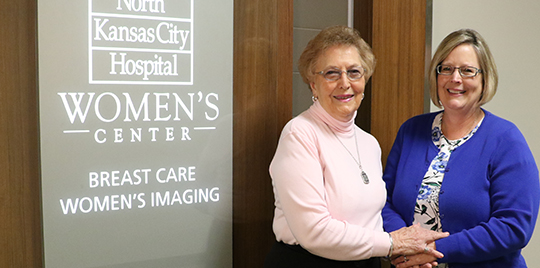Prostate Cancer: Be Proactive
September 5, 2018By: Mari Rydings
Categories: Cancer, Men's Health, Prevention

Prostate cancer is the most common cancer among men nationwide and the second leading cause of cancer death in men.
5 Facts
Did you know prostate cancer:
- Affects 1 in every 9 men
- Can affect younger men
- Is deadlier than breast cancer
- Is detectable and treatable when diagnosed early
“One of the most important things men can do is see their primary care physician every year,” said Gerald Y. Park, MD, a urologist with Kansas City Urology Care who practices on the NKCH campus. “Primary care physicians look for early signs and symptoms of diseases, and understand the latest screening guidelines to look for problems common in men at different ages of their lives.”
Screening Guidelines
The American Urological Association recommends screening for men between the ages 55-69. It’s typically a decision made in partnership you and your doctor, who can help determine, based on various factors, whether you should be screened.
Men with a family history of the disease and African American men are at the highest risk for developing prostate cancer. Earlier screening, around the age of 40, is recommended for those populations.
What to Expect During Screening
Prostate screening involves a blood test for a Prostate Specific Antigen, often referred to as PSA, and a digital rectal exam, which allows the doctor to feel the prostate for hard, lumpy or abnormal areas. The test takes just a few minutes.
Treatment Options
Common treatment options for prostate cancer include active surveillance, surgery and radiation therapy.
An annual checkup is the best way to detect prostate cancer and other serious conditions early, when they are most treatable. Find a doctor that’s right for you.
Related viewing: Thomas Herrick, MD, Talks Prostate Cancer
Related reading: Men’s Health Screenings and Checkups


